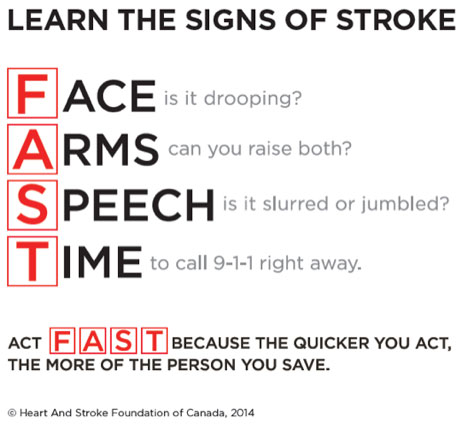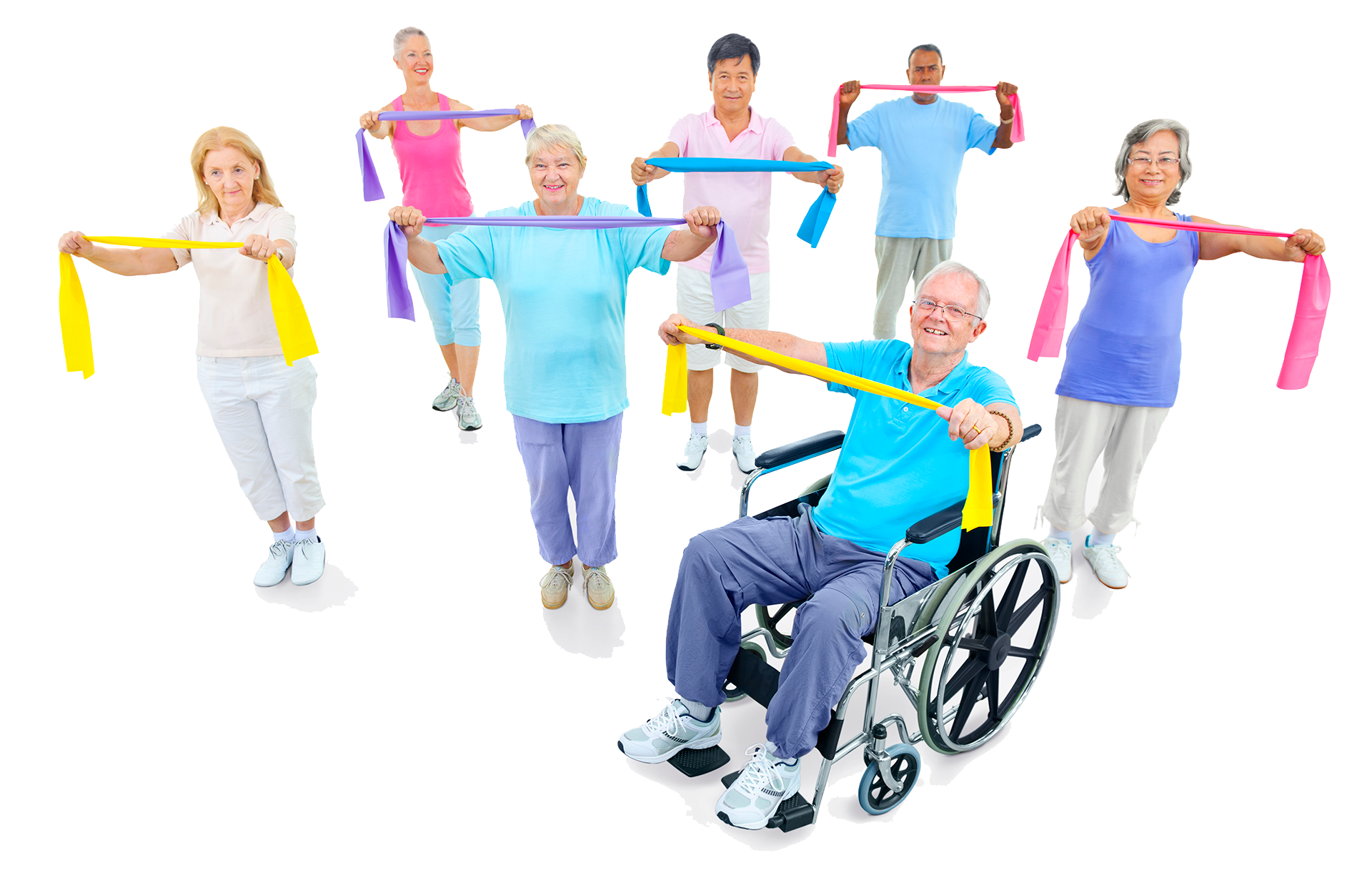Do you know the Signs of a Stroke?
A common concern as we age is that it potentially increases our risk of us or our friends having a stroke. The Canadian Heart and Stroke Foundation has information on what to watch for in ourselves or others. They say: ACT FAST! When you have a stroke, your brain isn’t getting the blood it needs. Treatment is needed right away to lower your chances of brain damage, disability, or even death.
Signs of a Stroke – ACT “FAST”!

A common concern as we age is that it potentially increases our risk of us or our friends having a stroke. The Canadian Heart and Stroke Foundation has provided information on what to watch for in ourselves or others. They say: ACT FAST! When you have a stroke, your brain isn’t getting the blood it needs. Treatment is needed right away to lower your chances of brain damage, disability, or even death.
Signs of a Stroke – ACT “FAST”!
Use the FAST test to check for the most common symptoms of a stroke in yourself or someone else.
Face: Smile and see if one side of the face droops.
Arms: Raise both arms. Does one arm drop down?
Speech: Say a short phrase and check for slurred or strange speech.
Time: If the answer to any of these is yes, call 911 right away! Write down the time when symptoms started.
Minutes matter in treating stroke. Calling a doctor or driving to the hospital yourself wastes time. Ambulance workers can judge your situation sooner, and that boosts your chance of getting the treatment you need as soon as possible.
Some other warnings are:
- Numbness or weakness in your face, arm, or leg, especially on one side
- Confusion or trouble understanding other people
- Difficulty speaking
- Trouble seeing with one or both eyes
- Problems walking, staying balanced and/or coordinated
- Dizziness
- Severe headache that comes on for no reason
Everyday choices to lower your risk:
- Be more active – aim for 30 minutes or more of physical activity (in 10 minute bouts or more) most days of the week: brisk walking or taking the stairs instead of escalator.
- Make healthy food choices – eat more fruits, vegetables and whole grains, homemade meals using whole, natural foods. Limit processed food (like canned soup, cold cuts, frozen meals).
- Manage stress – understand what causes your stress. Can you reduce or eliminate your stressors? Do things that relax you, like listening to music. Include your mental health in a discussion with your doctor.
- Quit smoking – one of the best things you can do to lower your risk. Quitting is hard. Ask for help – call 1-866-366-3667.
- Limit the alcohol you drink.
By changing your lifestyle habits, you are reducing your risk of TIA* and stroke. http://www.heartandstroke.ca/stroke
*A TIA (Transient Ischemic Attack) happens when blood to part of your brain is blocked or reduced, most often by a blood clot or plaque. A TIA is often called a mini-stroke. When the blood flows again, the symptoms go. With a stroke, the blood remains blocked and the brain cells can be damaged. It is also important to tell you doctor if you think you have had a TIA.

